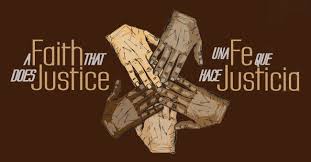
How Faith-Based Organizations Bring Technology to Underprivileged Nations
Faith-Based Organizations (FBOs) serve as areligious instrumentality of social transformation in contemporary time. This assertion remains true judging from different views emanating from several sectors of human society. In recent years, policymakers have begun looking to churches, synagogues, mosques, and other faith-based organizations to play a greater role in strengthening communities. More than half of all congregations and many other faith-based organizations provide some form of human services. Congregational participation in providing human services is greater among worship communities that are larger (and hence have more resources), located in low-income neighborhoods, theologically liberal, and are African American.FBOs provide human development services, no doubt, such as educational, health, technological and social services. However, FBOs are valued to have comparative advantages over secular social service providers, for example, their moral competence, their roots within rural and urban communities, the respect and trust of their members as well as their beneficiaries.FBOs have historically been in the forefront of service delivery and social movements in development, but have been disregarded by donors for decades. The assumed disregard for FBOs in human development is not unconnected with the perception that religion is anti-developmental. The activities of FBOs permeate almost all sphere of life. The activities of FBOs range from educational, health,technological to social development. For this study,let’s look at technological development

Technological Development
Technological change, technological development, technological achievement, or technological progress is the overall process of the invention, innovation, and diffusion of technology or processes. In essence technological change is the invention of technologies(including processes) and their commercialization or release as open source via research and development (producing emerging technologies), the continual improvement of technologies (in which they often become less expensive), and the diffusion of technologies throughout industry or society (which sometimes involves disruption and convergence). In short, technological change is based on both better and more technology.
Invention
The creation of something new, or a “breakthrough.” FBOs are known to donate financially to research projects in places where is regarded as a mission field to better the lives of the masses there.
Communication channels
Communication channels are the means by which a source conveys a message to a receiver. Information may be exchanged through two fundamentally different, yet complementary, channels of communication. Awareness is more often obtained through the mass media, while uncertainty reduction that leads to acceptance mostly results from face-to-face communication. FBOs can through these channels convey information to the grassroots population
Social system
The social system provides a medium through which and boundaries within which, innovation is adopted. The structure of the social system which can be shaped by FBOs affects technological change in several ways. Social norms, opinion leaders, change agents, government and the consequences of innovations are all involved. Also involved are cultural setting, nature of political institutions, laws, policies and administrative structures.
Time
Time enters into the acceptance process in many ways. The time dimension relates to the innovativeness of an individual or another adopter, which is the relative earliness or lateness with which an innovation is adopted.




